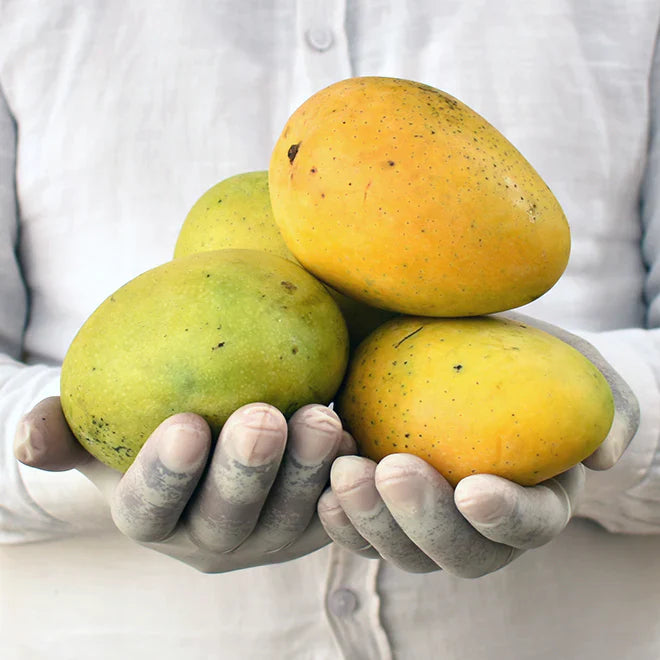
Natural vs Chemically Ripened Mangoes: What You Need to Know
Mangoes are loved across India, but not all mangoes are created equal. Many sellers use calcium carbide or ethylene gas to speed up ripening — a process that may compromise both taste and safety.
Let’s understand the difference between natural and artificial ripening — and how it affects your health.
🧪 What Is Chemical Ripening?
Most market mangoes are artificially ripened using:
-
Calcium Carbide: A banned chemical that releases acetylene gas — similar to industrial fuel.
-
Ethylene Spray or Chambers: While safer than carbide, it's still not natural and alters the fruit's natural maturity process.
These methods:
🚫 May leave chemical residue on the fruit
🚫 Force mangoes to ripen unevenly
🚫 Can result in poor taste and texture
🚫 May pose health risks, especially to children and seniors
🌿 What Is Natural Ripening?
Natural ripening means:
✅ Letting mangoes ripen on the tree or in breathable crates
✅ No chemicals, no gas chambers
✅ Time-based process — slower, but healthier
✅ Fruits mature fully, develop natural aroma and sweetness
At ASD Orchards, we follow traditional methods of ripening mangoes using hay, temperature control, and air circulation — just like old times.
👃 How to Spot the Difference?
| Feature | Chemically Ripened | Naturally Ripened |
|---|---|---|
| Smell | Faint, artificial | Strong, fruity |
| Color | Bright yellow, patchy | Natural gradients |
| Taste | Bland or bitter | Sweet & juicy |
| Texture | Rubbery or hard | Soft & fibrous |
🚨 Why It Matters:
Choosing naturally ripened mangoes protects your family from:
-
Toxic chemical exposure
-
Poor nutrition
-
Digestive issues
🍊 Buy Safe. Eat Safe.
At ASD Orchards, we deliver:
✅ Naturally Ripened Fruits
✅ No Cold Storage
✅ Farm to Doorstep in 24-48 hrs
